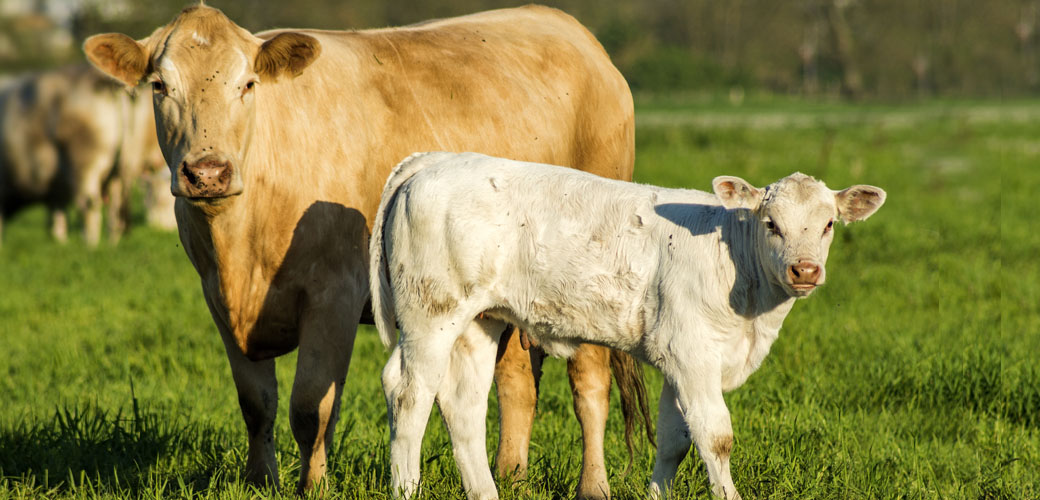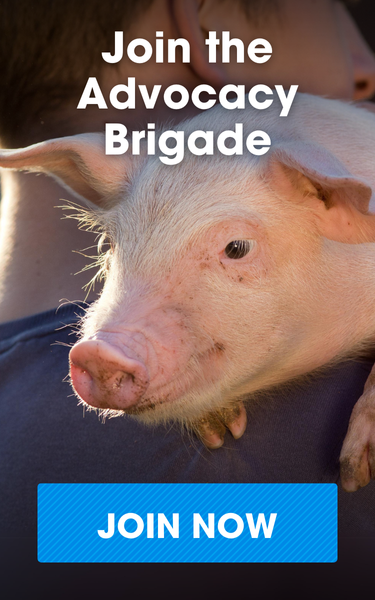
Companies with Strong Farm Animal Welfare Policies Weather Pandemic Better

Throughout the COVID-19 pandemic, the news has been full of disturbing stories of “depopulation" (mass killings) of animals on factory farms, industrial slaughterhouse shutdowns, supply chain disruptions and the unjust treatment of animals and food workers.
However, many farms and companies with animal welfare certifications have avoided these economic and ethical pitfalls, further validating the ASPCA’s position that demonstrating a meaningful commitment to animals is genuinely beneficial to a business’s bottom line.
The ASPCA recently surveyed the companies on our Shop With Your Heart Brand List, all of which have one (or more) of our three recommended animal welfare certifications. More than 96% of respondents said their commitment to animal welfare was helping them weather these uncertain times.
Some noted that their focus on animal welfare appealed to heightened public awareness of the connections between animal and human health:
“Animal welfare matters more than ever. As do environmental issues. We must make a firm commitment to eat well while also doing so responsibly. We are a circle of life and we must honor that circle.”
“[Our Company] held steadfast to our animal welfare commitment during the COVID-19 pandemic…. During the first several months of the pandemic, many consumers rediscovered cooking and the importance of family meals, and have renewed their commitment to eating wholesome, quality foods.”
“I think in such a trying time folks wanted to support our business because they know we take really good care of our animals and are Animal Welfare Approved.”
Other companies found that higher welfare practices offered supply chain stability and flexibility:
“Our entire business is predicated upon sourcing from small farms that focus on animal welfare, which makes us more flexible and able to pivot deftly. While the news was talking about nationwide meat shortages, our commitment to smaller, humane farms and a sustainable supply chain meant that we didn’t experience those interruptions.”
“Our commitment to animal welfare and 100% grass-fed and finished beef practices has developed a diversified, high-quality, resilient supply chain that has fared well as compared to the consolidated industrialized system during these challenging times.”
“Animal welfare is one of the core tenants that guide the decisions we make. These shared values are always there, but their importance is highlighted in times of crisis.”
One welfare-certified farm, White Oak Pastures, wrote about how slower-growing, healthier breeds allow them to stay flexible, compared to the fragile, fast-growing breeds on factory farms:
“If we don't slaughter our animals when we planned to, they are healthy enough to live out a natural life expectancy … they are not dying of obesity and the diseases of sedentary life.”
Building animal welfare into the foundation of a farm or company can create stability, brand loyalty and consumer trust. That is why the ASPCA is working to ensure that COVID-19 relief funds go to welfare-certified and pasture-based farmers, not industrial confinement operations that jeopardize animal welfare and human health and create conditions that can easily lead to future pandemics. The ASPCA works with many companies to help them obtain welfare certifications, and we hope to assist even more businesses in attaining those higher standards and transparency.
Our Farm Animal Welfare Certification Guide can help farmers understand the value of certification programs and determine which certification might be right for them. Consumers can help by shifting their personal food budgets away from factory-farmed products to higher-welfare alternatives, whether welfare-certified meat, eggs and dairy or plant-based products. Visit our Shop With Your Heart section to get started!

